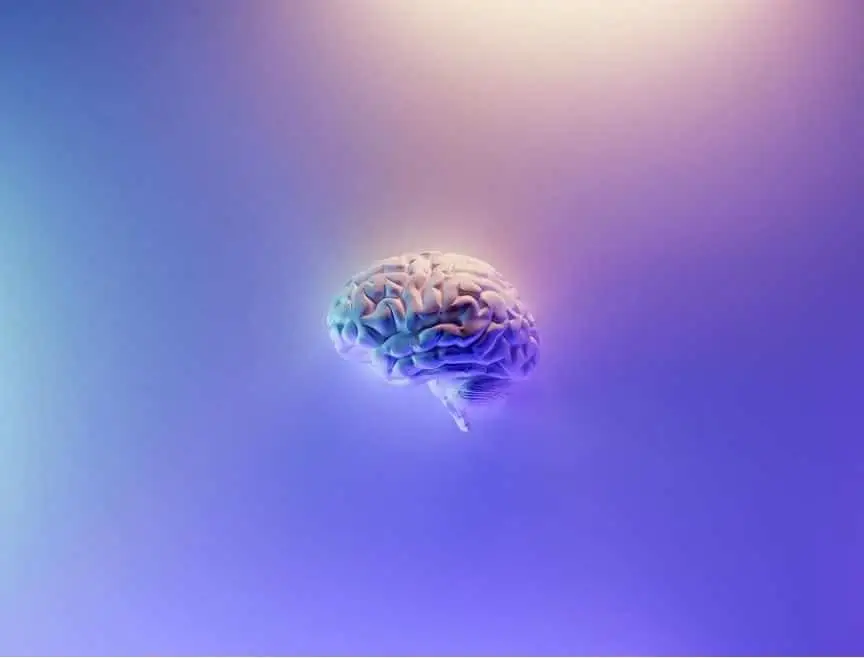A Recent Study in TBI Patients Revealed Slow Recovery
A recent study published by TRACK-TBI found that more than half of mild traumatic brain injury patients (MTBI) were still suffering from some injury-related side effects five years after the trauma. This study followed almost 1,200 patients with mild and moderate brain injuries in 18 level-one trauma centers. It found that after five years, 53% of the mild cases and 83% of the moderate/severe cases had persistently elevated rates of “incomplete functional outcomes.”
This finding dramatically underscores the need for long-term rehabilitation, improved treatment, and increased community services for those with TBI.
What is Traumatic Brain Injury?
Traumatic brain injury is any change in brain function caused by an external (traumatic) force. It can be anything from a blow to the head causing a concussion to a penetrating wound to the head damaging the brain tissue beneath.
Traumatic brain injury, or TBI, is categorized as mild, moderate, or severe:
- Mild TBI: Characterized by confusion, drowsiness, headache, brief loss of consciousness, nausea, vomiting, and minor vision changes. It used to be thought that mild TBI, such as a concussion, was not serious, and had no lasting effects.
- Moderate TBI: It has effects similar to mild TBI, but they last longer and may linger for hours or days.
- Severe TBI: Characterized by extended periods of unconsciousness, behavioral changes, loss of motor function, sensory disturbances, and coma.
Recovery from TBI: Short-Term and Long-Term
Formerly, it was thought that mild TBI, or concussion, was a minor injury because recovery from a concussion proceeds fastest in the three to six months after the injury. Most clinical studies take place during this brief period, resulting in medical data indicating little to no lasting harm. The long-term study carried out by the TRACK-TBI team found that patients often remained static or declined after the initial improvement. In other words, they did not continue their improvement trajectory back to normal.
Short-Term Prognosis
The short-term prognosis for mild TBI is generally good, provided the individual has only one injury. They may recover most or all of their brain function within three to six months. The short-term effects of a mild TBI—headache, confusion, drowsiness, or fatigue—usually resolve in a short time. With moderate TBI, the kind one might suffer after a serious vehicle accident; the effects may linger for a bit longer.
If an individual has suffered multiple concussions, the effects become cumulative. As the NFL discovered in quarterbacks and running backs, too many blows to the head lead to a dreadful condition known as chronic traumatic encephalopathy. There is no magic number for “how many is too many,” but too many too close together is certain to be dangerous.
Long-Term Prognosis
It took high-profile athletes in the NFL and returning combat veterans from Afghanistan to bring the seriousness of moderate TBI to public consciousness. Researchers have discovered that most TBI recovery occurs in the first few months. After that, any additional improvement is slow, and symptoms are serious but harder to see.
Some of the long-term symptoms of TBI may include:
- Mood disorders (anxiety, depression, disordered thinking)
- Substance abuse
- Violent behavior
- Sleep disorders
- Impulse control difficulty
- Loss of coordination
These symptoms may occur in combination with PTSD, pre-existing psychiatric disorders, or substance abuse issues (“co-morbidity”), or exacerbate underlying and undiagnosed problems. Physicians and psychiatrists have only recently realized the effect that TBIs have on mental illness and how TBI symptoms may mimic psychological disorders.
Alzheimer’s, Dementia, and TBIs
A recent study released by the Perelman School of Medicine has concluded that even a single instance of TBI may be sufficient to predispose someone to dementia later in life. The risk increases with the number of head traumas and does not appear to be associated with genetic or other risk factors.
The Perelman study found that the risk increases for all races and genders but was highest in white females. The reasons for this are not fully clear, and the authors suggested more research was needed. They also observed that prevention is easy since seatbelts and helmets are readily available.
Kids and their Hard Heads
With all this in mind, there is no minimum number of concussions that are “okay” for a child to have. The archaic “three concussion rule” is a thing of the past and should stay there. No parent should listen to a coach who says, “kids have hard heads,” and want their child to return to the field.
Parents are best situated to determine if their child isn’t acting right after a bump on the head. They should keep the study by TRACK-TBI in mind and realize that just because things seem okay in a few days or weeks does not mean everything is back to normal. They should reevaluate their child again in three months and in six months and not make a final determination until at least a year has passed.
What Needs to Be Done for TBI Victims
A shocking review of multiple surveys, carried out by the Substance Abuse and Mental Health Services Administration (SAMHSA) found that in high-risk populations, individuals who had suffered a mild or moderate TBI were:
- 70% of substance abuse treatment populations
- 56% of psychiatric inpatients
- 64% of prison inmates
- 72% of the homeless
By contrast, only 27% of the general population had suffered a mild or moderate TBI.
A study carried out in Tennessee found that patients with multiple TBIs had increased levels of all psychiatric disorders. It is difficult to know whether the TBI preceded or followed the issues that landed these individuals in their current location; however, a review of the long-term prognosis and decline of TBI patients reveals that treatment for TBIs should be part of the treatment plan for substance abuse, incarcerated and institutionalized individuals, and homelessness.
Treatment Protocols and Community Support
When combat veterans with closed-head trauma (mostly from surviving IED explosions inside armored vehicles) began returning from Iraq and Afghanistan, the Veterans Administration (VA) was ill-equipped to handle returning veterans with a double dose of PTSD and TBI. Some studies suggest that the psychiatric symptoms displayed by some veterans (sleep disturbances, depression, substance abuse) may be TBI-related rather than PTSD, as initially thought.
SAMHSA recommends that a multi-pronged or holistic approach is necessary when treating patients with known or suspected TBI. Their study recommends screening all patients, regardless of their presenting problems, for concussion and periods of trauma-related unconsciousness.
This is a serious public health issue and one that needs to be addressed at the community level as well as at the state and federal levels. If head injuries and concussions can be prevented or treated early and followed up aggressively, then they might not progress into substance abuse, incarceration, and homelessness.
Recovery After a Traumatic Brain Injury
The word “trauma” in TBI refers to the damage done to the brain when it strikes or bounces off of the inside of the skull. The tissues and cells of the brain are bruised and torn, and it takes time for them to recover. The brain transmits information electrically; just like a hard drive is disrupted when a computer is dropped, a sharp jolt to the brain disrupts the flow of information.
After a Mild TBI
After a mild TBI, victims may feel dizzy, disoriented, or sleepy. The old wive’s tale about not letting someone with a concussion fall asleep for four hours has been replaced by letting them sleep after they’ve been evaluated by a doctor to ensure there isn’t an underlying brain bleed.
Victims may feel tired or “fogged in” for several weeks or months after the concussion. They may be unusually clumsy, get angry or depressed for no reason, or have trouble organizing their thoughts. This is called “post-concussion syndrome,” and is normal after mild TBI. They should consider seeing a psychiatrist or therapist to help them work through their recovery.
After a Moderate TBI
All the mild TBI symptoms are increased in a moderate TBI, and the time it takes to recover is much longer. Patients may need extra help from specialists during their recovery, including:
- Speech and language therapy for help swallowing, learning to talk, or remembering the right words to use. If they were in a coma for any length of time, they would need assistance learning to breathe unaided.
- Physical therapy is used to help with walking, strengthening arms and legs, and recovering balance and coordination.
- Occupational therapy to relearn daily life skills. Surprisingly, people in comas may forget how to brush their teeth or wash their hair.
- Cognitive therapy is used to help them recover their thinking and behavioral skills. It is common for people to forget how to “think” after a serious head injury, and they may need assistance remembering how to carry on conversations and perform everyday chores.
People who have suffered serious head traumas will need more intensive care and may require long-term home care or hospitalization. Minimally conscious individuals may never fully recover their ability to return to normal life.
The Cost of Care
The accumulation of short—and long-term care adds up quickly. Even if the person who suffered the injury has insurance, there is no guarantee that it will cover all of their treatments. If they had no insurance or were the victims of an accident or an on-the-job injury, they should not be required to foot the bill for their treatment.
For individuals whose service to their community or country caused their head trauma, agencies responsible for their medical care can and should step up to ensure these people receive the treatment to which they’re entitled.
For people injured in accidents on the road or in the workplace, personal injury attorneys are there to ensure victims receive not just compensation for their current injuries but also for the expense of long-term treatment.
Insurance companies will often refuse payments as “speculative” or “uncertain.” As more evidence of the long-term effects of TBIs appears, victims’ ability to sue for the long-term costs of treating and caring for late-emerging effects of concussions and other TBIs will become easier.
As more evidence accumulates on the impact of mild concussions and moderate head trauma, attorneys will be able to present compelling cases for longer care or at least longer evaluation periods before any final determination is made on a personal injury case.
When You Need an Attorney
Suffering from a traumatic brain injury is a terrifying prospect. It changes your life and the basis of your entire personality. The last thing you may be thinking of is hiring an attorney to try to fight for your rights in court. However, you may need one to get the care and compensation you deserve after an accident.
Keep a few things in mind when looking for an attorney to represent you after a serious accident. You need not just a personal injury attorney but one who understands traumatic brain injury and who knows that this isn’t “just a concussion” but something that may affect your life for years to come.
You should look for an attorney who will treat you with the care and compassion you need at this vulnerable time and isn’t afraid to take your case to court. They should be able to talk to you one-on-one anytime and answer all your questions about your case.
If you need an attorney in Louisiana or Texas for your TBI case, call Morris & Dewett Injury Lawyers. We are here whenever you need us. Contact us today.
Sources:
Centers for Disease Control and Prevention. (2022). Recovery from a Moderate or Severe TBI. https://www.cdc.gov/traumaticbraininjury/moderate-severe/recovery.html
Downs Rachlin Martin PLLC. (2023, March 28). Recent study finds incomplete recovery at 5 years in 53% of MTBI patients. JD Supra. https://www.jdsupra.com/legalnews/recent-study-finds-incomplete-recovery-2959934/
Nelson, L.D., et al. (2023, March 20). Functional Recovery, Symptoms, and Quality of Life 1 to 5 Years After Traumatic Brain Injury. JAMA. https://www.ncbi.nlm.nih.gov/pmc/articles/PMC10028488/
Penn Medicine News. (2021, March 9). Head Injury 25 Years Later – Penn Study Finds Increased Risk of Dementia. https://www.pennmedicine.org/news/news-releases/2021/march/head-injury-25-years-later-penn-study-finds-increased-risk-of-dementia
Skerrett, Patrick. (2016, January 11). Experts debate: How many concussions are too many for an athlete? Stat News. https://www.statnews.com/2016/01/11/concussions-counseling-experts-debate/
Substance Abuse and Mental Health Services Administration. (2021). Treating Clients with Traumatic Brain Injury. SAMHSA Publication No. Pep21-05-03-001. https://store.samhsa.gov/sites/default/files/pep21-05-03-001.pdf
UC Health. (2023). Brain Injury: The Road to Recovery. https://www.uchealth.com/en/media-room/articles/brain-injury-the-road-to-recovery
U.S. Department of Veterans Affairs. (2022, February 10). Effects of TBI. https://www.mentalhealth.va.gov/tbi/treatment.asp
Vasterling, J. J., Jacob, S. N., & Rasmusson, A. (2017, November 14). Traumatic Brain Injury and Posttraumatic Stress Disorder: Conceptual, Diagnostic, and Therapeutic Considerations in the Context of Co-Occurrence. Neuropsychiatry Online. https://neuro.psychiatryonline.org/doi/10.1176/appi.neuropsych.17090180
What is expected in recovering from a traumatic brain injury? Heersink School of Medicine, The University of Alabama at Birmingham. https://www.uab.edu/medicine/tbi/newly-injured/questions-about-traumatic-brain-injury-tbi/what-is-expected-in-recovering-from-a-tbi





